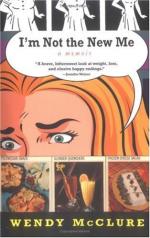“Don’t you really read them?” he asked, wistfully. “I wish I could say as much. I’m afraid I shouldn’t have the perseverance to keep that up right along.”
In interesting contrast to all this discord from the outside, came the personal letters. The book was hardly under way before the storm of them set in. It began like a New England snow-storm, with a few large, earnest flakes; then came the swirl of them, big and little, sleet and rain, fast and furious, regular and irregular, scurrying and tumbling over each other through the Andover mails.
The astonished girl bowed her head before the blast at first, with a kind of terrified humility. Then, by degrees, she plucked up heart to give to each letter its due attention.
It would not be very easy to make any one understand, who had not been through a closely similar experience, just what it meant to live in the centre of such a whirlwind of human suffering.
It used to seem to me sometimes, at the end of a week’s reading of this large and painful mail, as if the whole world were one great outcry. What a little portion of it cried to the young writer of one little book of consolation! Yet how the ear and heart ached under the piteous monotony! I made it a rule to answer every civil letter that I received; and as few of them were otherwise, this correspondence was no light load.
I have called it monotonous; yet there was a curious variety in monotony, such as no other book has brought to the author’s attention. The same mail gave the pleasant word of some distinguished writer who was so kind as to encourage a beginner in his own art, or so much kinder as gently and intelligently to point out her defects; and beneath this welcome note lay the sharp rebuke of some obscure parishioner who found the Temple of Zion menaced to its foundation by my little story. Hunters of heresy and of autograph pursued their game side by side. Here, some man of affairs writes to say (it seemed incredible, but it used to happen) that the book has given him his first intelligent respect for religious faith. There, a poor colored girl, inmate of a charitable institution, where she has figured as in deed and truth the black sheep, sends her pathetic tribute:
“If heaven is like that, I want to go, and I mean to.”
To-day I am berated by the lady who is offended with the manner of my doctrine. I am called hard names in no soft language, and advised to pray heaven for forgiveness for the harm I am doing by this ungodly book.
To-morrow I receive a widower’s letter, of twenty-six pages, rose-tinted and perfumed. He relates his personal history. He encloses the photographs of his dead wife, his living children, and himself. He adds the particulars of his income, which, I am given to understand, is large. He adds—but I turn to the next.
This correspondent, like scores upon scores of others, will be told instanter if I am a spiritualist. On this vital point he demands my confession or my life.




